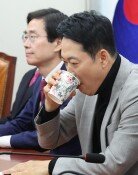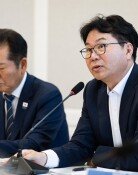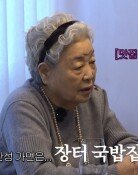Will Chungcheong Province Voters Turn Away From the Uri Party Permanently?
Will Chungcheong Province Voters Turn Away From the Uri Party Permanently?
Posted May. 03, 2005 22:03,
Voters in Chungcheong Province turned their face away from the ruling Uri Party in the re- and by-elections held on April 30. Since the ruling Uri Party had full assurance of its winning the election, taking the lead of building a new administrative complex city in Chungcheong Province, it was all the more shocked by the defeat. However, not only the Grand National Party (GNP) but also a new political party that is expected to be launched by securing a foothold in Chungcheong Province, does not readily express, voters sentiments in Chungcheong Province in favor of its own camp. So Chungcheong Province, in which the outcome of major national elections had been decided, holds the limelight in political circles once again.
Arrogance Brought Defeat-
There were a lot of opinions of self-reflection within the Uri Party that it has been quite arrogant over the defeat of two electoral districts in Chungcheong Province (Gongju-Yeongi in Chungnam and Asan) where a re-election was held for lawmakers.
In the Gonju-Yeongi region, it was revealed that the Uri Partys candidate reported a false academic background, resulting in a change of candidate. In Asan, candidate Lee Myeong-su from the United Liberal Democrats (ULD), who had been strategically nominated with the possibility of winning the election, was involved in the matter of the dual party membership, which made him get out of the race, even failing to register.
In addition, it was pointed out that the Uri Party didnt grab the peoples sentiment in the region. In regards to the cause of defeat in the Gongju-Yeongi region, Park Byeong-seug, chairman of the planning committee of the Uri Party analyzed on May 2, in the Gongju-Yeongi region where a new administrative city is scheduled to be established, and in Yeongi where the government has finished landholding by 70 to 80 percent, the Uri Party gained several thousands of votes more compared to other parties, while in Gongju, it lost. He added, In Gongju, there were more restriction areas than the amount of land purchases.
Kim Deok-young, head of Korea Research explained, It seems likely that voters began to counter the ruling Uri Party in the re- and by-elections, adding, With regards to the new administrative city, there was absolute support for the ruling Uri Party.
Chungcheong Province has the Casting Boat-
In the 15th presidential election held in 1997, candidate Kim Dae-jung from the National Congress for New Politics Party (NCNP) won over Lee Hoe-chang from the GNP by a narrow margin of 390,000 votes. At that time, Kim Dae-jung gained more 400,000 votes than Lee Hoe-chang in Chungcheong Province. This was due to the effect of the DJP coalition, in which Kim Dae-jung joined with Kim Jong-pil, leader of the ULD, who has called himself a leader of Chungcheong Province.
The outcome of the 16th presidential election in 2002 was similar to that of the previous presidential election. Although Roh Moo-hyun from the New Millennium Democratic Party (NMDP) won over Lee Hoe-chang by 570,000 votes, the vote difference in Chungcheong Province accounted for 45 percent of the total votes difference.
The power of votes in Chungcheong Province still remained in the 17th general election last year. When the ruling Uri Party won the GNP by 870,000 votes nationwide, the difference of votes in Chungcheong Province stood at 50 percent.
Meanwhile, in the 16th general elections in 2000, even though the GNP became the majority party from the NMDP and ULD, which were joint ruling parties, a rush was made by each party, the NMDP recorded the highest number of votes in Chungcheong Province.
Where is Voter Sentiment in Chungcheong Province Heading?-
It is not clear that voter sentiment in Chungcheong Province will continue to remain in the local election next year and the presidential election in 2007. This is because there exist various factors like ambushes.
Above all, it is pointed out that it is hard for just two electoral districts to represent voter sentiment in all of Chungcheong Province. By the same token, an official of Cheong Wa Dae said on the same day, This election was merely held in the form of a local election without nationwide issues.
It is highly likely residents in Chungcheong Province will change their sentiment in the process of establishing a new administrative city scheduled to start in 2007. The move of launching a new political party in the middle of the country and the matter of a future rearrangement of political circles are also taken as major factors affecting voter sentiment.
Yeon-Wook Jung jyw11@donga.com







